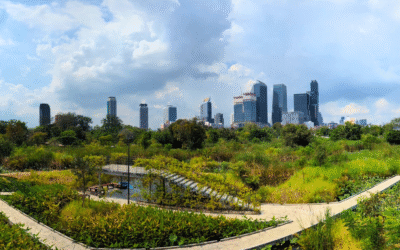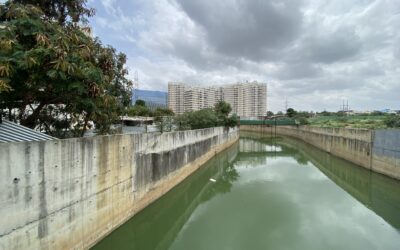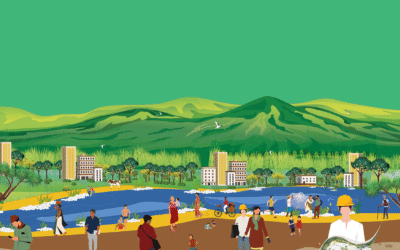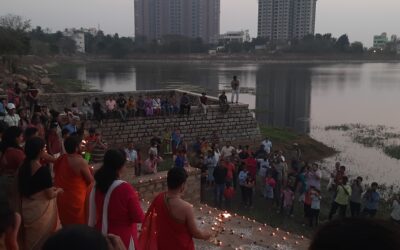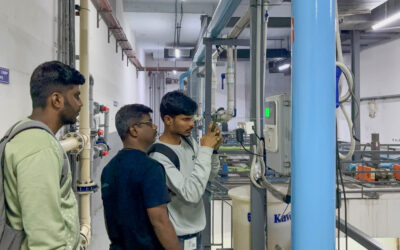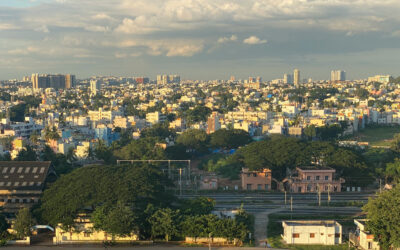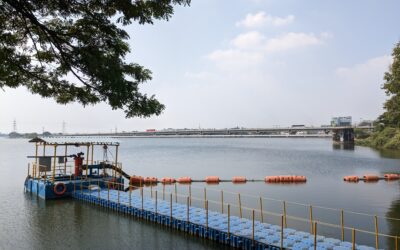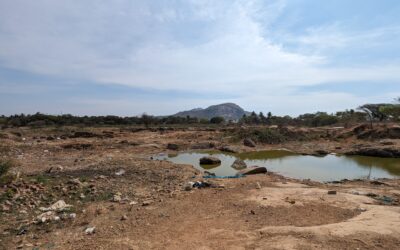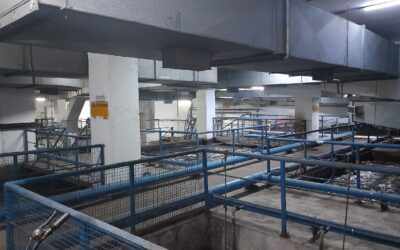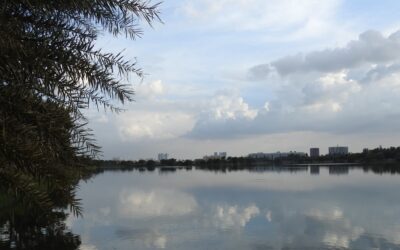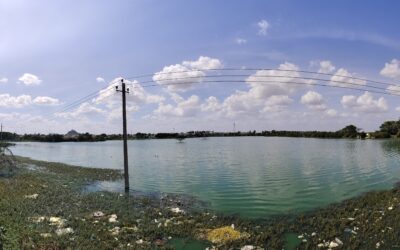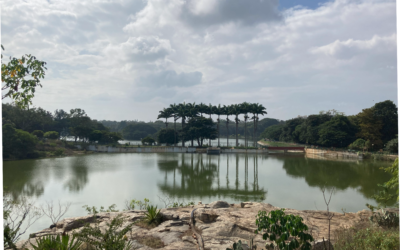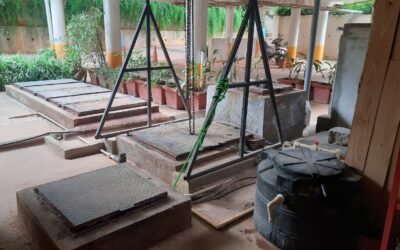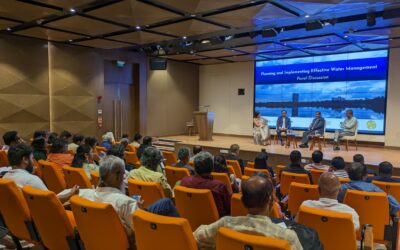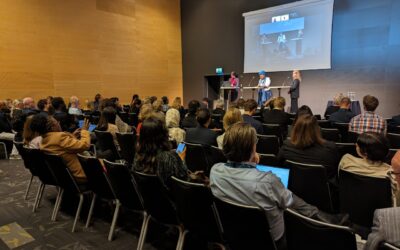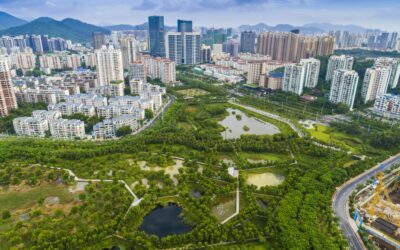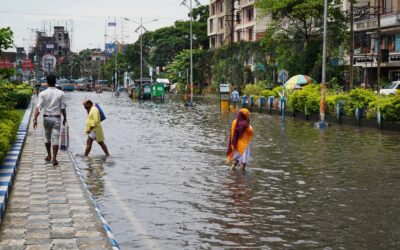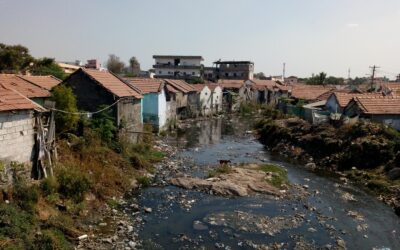Nature-based solutions offer ecological, social, and economic benefits, but focusing on one while neglecting the others can lead to inefficient, unjust, or even harmful outcomes
Blogs & Op-eds
Urban Water
Rural Futures
Technical Consulting
Platforms and Partnerships
Futures Research
Incorporating Nature-Based Solutions to Manage Flooding: Transforming Bengaluru’s Manyata Tech Park
With conventional engineering solutions failing to control flooding in Bengaluru, we assess the potential of nature-based solutions through a modelling exercise
Promoting Wastewater Reuse, Community Engagement, and Financial Incentives for Water Conservation | Insights from the Urban Water Programme
The Urban Water team shares insights from their initiatives for water circularity and resilience
Celebrating Nature and Community: The Spirit of ‘Kere Connect Habba’
Friends of Lakes and India Cares Foundation are organising Kere Connect Habbas, or lake festivals, around the lakes of Bengaluru, to foster connection and engagement between a lake and its community
How Can We Engage Communities to Conserve Water in Bengaluru?
The Green Star Challenge promotes water sustainability in Bengaluru by acknowledging and promoting communities’ and institutions’ conservation efforts
Building Climate-Resilient Cities with Nature-Based Solutions
In part 3 of this blog series, we look at how nature-based solutions (NbS) can help urban India mitigate and adapt to heat and water stress. We also delve into the work we are doing on NbS.
Bengaluru Has the Highest Number of Decentralised Sewage Treatment Plants Globally. Are They Effective?
WELL Labs and Eawag surveyed decentralised sewage treatment plants in the Yelahanka zone of northern Bengaluru to understand the challenges in urban wastewater treatment and reuse.
Grey to Blue: What Can Bengaluru Learn From Chennai on Tertiary Treatment of Wastewater
Chennai’s Nesapakkam plant is an important project we need to evaluate and consider replicating in other cities because it converts wastewater to potable quality
Webinar on Water Security in Karnataka’s Small Towns: 5 Key Learnings
India’s small towns face many complex and intersecting risks. To better understand current challenges and explore opportunities, WELL Labs partnered with BORDA and TIDE to conduct a webinar on building thriving and more water-secure towns.
Bengaluru’s Wastewater Market Experiment: A Promising Solution for Water-Scarce Cities Globally
The economic case for on-site treatment of wastewater is weak. However, the recent water crisis coupled with the new policy has changed that. In this first part of a blog series, we explain what these changes mean for urban water security.
Where Does Bengaluru Get Water from?
It is important to understand where Bengaluru gets water from and how it is used to tackle the recurring problems of floods and water shortages.
Wastewater Reuse Policies across Indian States
We reviewed wastewater reuse policies and action plans across Indian states to determine reuse options, targets, and water quality standards.
Lake Rejuvenation Can Resolve Urban Water Issues, But Only if Done Scientifically
WELL Labs has partnered with DCB Bank and Friends of Lakes to demonstrate a scientific approach to lake rejuvenation that takes into account the ecology and communities’ needs.
What We Learnt from the Water Reuse Project in 2023
We uncovered gaps and opportunities in the wastewater treatment and reuse ecosystem and garnered interest from emerging water-intensive industries.
How We Can Make Bengaluru’s Water Systems More Sustainable and Affordable
WELL Labs has partnered with the Swiss Federal Aquatic Institute of Science and Technology (Eawag) to research decentralised wastewater treatment and reuse and enable their adoption in Bengaluru for improved water security.
Wastewater Conference: Turning Bengaluru into the ‘Silicon Valley for Water Innovation’
WELL Labs, along with the Swiss Federal Institute of Aquatic Science and Technology (EAWAG), and the Bangalore Apartments’ Federation (BAF) jointly organised the conference focused on wastewater treatment and reuse.
Beyond the Jargon: 10 Key Takeaways from World Water Week 2023
WELL Labs Executive Director, Dr. Veena Srinivasan, led sessions on water and agriculture at World Water Week 2023, an annual event on global water issues organised by the Stockholm International Water Institute. She sums up 10 key insights from this year’s event in this blog post.
A Visionary Architect and a New Growth Model: What’s Behind the Rise of Sponge Cities in China?
In Part 2 of this blog series, we delve into how one man’s vision and coupled with reforms by the Chinese government led to the nationwide adoption of nature-based solutions to manage floods.
Soak Up the Rain: How a ‘Sponge City’ Makes Urban Areas Climate Resilient
In Part 1 of this blog series, we introduce the concept of sponge cities and how this Nature-based Solution has become a popular flood mitigation strategy.
Understanding Wastewater Reuse: 5 Learnings from the IWA International Conference
Our Urban Water team sums up five key learnings on wastewater treatment and reuse from the five-day IWA conference held in Chennai in January 2023.

